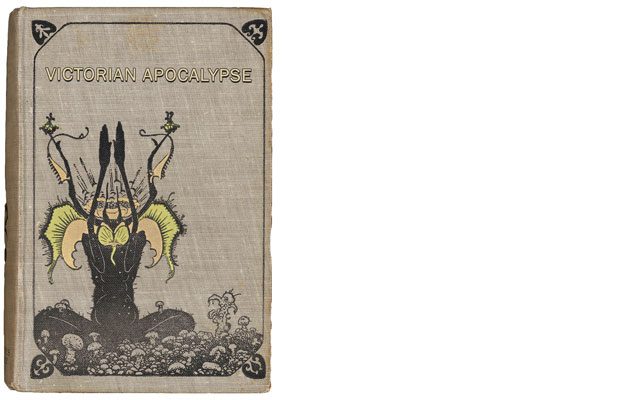
Date/Time
Thursday, October 7, 2021–Friday, October 8, 2021
8:30 am PDT – 10:30 am PDT
–Organized by Joseph Bristow (University of California, Los Angeles), Neil Hultgren (California State University, Long Beach) and Elizabeth Carolyn Miller (University of California, Davis)
Online Event via Zoom
Register online: https://ucla.zoom.us/meeting/register/tJYvcuuhrzIoHNyjTUgdGtPym0zdLuJmCBiV
During the 2021–22 academic year, the UCLA Center for 17th– & 18th-Century Studies and William Andrews Clark Memorial Library will host the Core Program entitled “Victorian Apocalypse: The siècle at its fin.” This program of lectures and presentations aims to reassess the ways in which the 1890s as an era has strong associations with theories of decadence, degeneration, and disease. “Victorian Apocalypse” will draw attention to the significance of UCLA’s unrivaled collections relating to the 1890s, especially the life and work of Oscar Wilde, which are held in the Clark Library collections.
On April 6, 1895, the day after Oscar Wilde was arrested for committing acts of gross indecency with other men, the National Observer thanked the Marquess of Queensberry for destroying “the High Priest of the Decadents.” Wilde’s imprisonment marked not only one of the most prominent episodes that brought the supposed immorality of fashionable Decadence to public attention; his case was also surrounded by emergent discourses of degeneration, ones that viewed his homosexuality as a pathology that was a clear symptom that Western culture was caught in a sexual and racial downward spiral.
This first conference will bring together cultural critics and historians of science and medicine to explore the ways in which the 1890s and turn-of-the-century witnessed in both Europe and North America a turbulent series of fears and fascinations with social types whose ethnic and erotic identities conveyed the idea of a maladie du siècle. This was a period when the Decadent movement in the arts was not uncommonly criticized through metaphors condemning its leprous properties, and when new understandings of bacteriology, epidemiology, tropical medicine, and infectious disease were being undertaken. Further, as several recent critics have acknowledged, the emergence of a seemingly disease-ridden Decadence bore certain degenerate qualities that created the conditions for an identifiable Modernism to emerge in the years leading up to the Great War.
Speakers
Mack Gregg, University of California, Riverside
Jessica Howell, Texas A&M University
Christos Lynteris, The University of St. Andrews
Monika Pietrzak-Franger, University of Vienna
Lorenzo Servitje, Lehigh University
James F. Stark, University of Leeds
PROGRAM SCHEDULE
Thursday, October 7, 2021
8:30 a.m.
Bronwen Wilson, University of California, Los Angeles
Welcome
Joseph Bristow, University of California, Los Angeles, Neil Hultgren, California State University, Long Beach, and Elizabeth Carolyn Miller, University of California, Davis
Opening Remarks
8:45 a.m.
Session 1
Moderator: Joseph Bristow, University of California, Los Angeles
Mack Gregg, University of California, Riverside
Disease of Form: Leprosy and Literary Decadence in the Fin de Siècle
9:10 a.m.
Monika Pietrzak-Franger, University of Vienna
(In)Visible Syphilis: Knowledge, Degeneration, and the Fin-de-Siecle
9:35 a.m.
Lorenzo Servitje, Lehigh University
The Romance of Antibiosis
10:00 a.m.
Discussion
10:30 a.m.
Session adjourns
Friday, October 8, 2021
8:30 a.m.
Session II
Moderator: Joseph Bristow, University of California, Los Angeles
Introductory Remarks
8:35 am
Jessica Howell, Texas A&M University
Decadent Atmospheres: The Persistence of Bad Air in Fin-de-Siècle Fiction
9:00 a.m.
Christos Lynteris, The University of St. Andrews
The Third Plague Pandemic as the Return of the Black Death
9:25 a.m.
James F. Stark, School of Philosophy, Religion and History of Science, University of Leeds
Microbial Promise in an Age of Decline
9:50 a.m.
Discussion
10:30 a.m.
Conference concludes
Image: Arthur Machen, front board, The House of Souls (London: E. G. Richards, 1906). Artist unknown. Reproduced by kind permission of Library Special Collections, Young Research Library, University of California.

